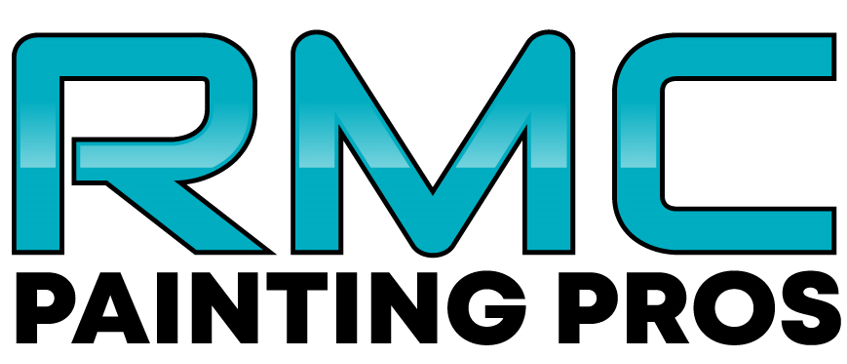
When it comes to giving your home a fresh, vibrant look, few investments are as transformative as a professional paint job. Whether you’re looking to enhance your home’s curb appeal, revamp your interior spaces, or protect your property from the elements, hiring a professional painting contractor is the key to achieving the best results. In this extensive guide, we will walk you through the ins and outs of hiring a professional painting contractor, ensuring that your project goes smoothly, your vision becomes a stunning reality, and you have all the information you need to make informed decisions.
The Importance of Hiring a Professional
Before we dive into the hiring process, it’s essential to understand why hiring a professional painting contractor for your project is crucial:
1. Expertise and Experience
Professional painting contractors bring a wealth of expertise and experience to your project. They are well-versed in various painting techniques, surface preparations, and the selection of the right materials and colors. Their knowledge ensures a high-quality finish that stands the test of time.
2. Efficiency and Speed
Professionals work efficiently and complete projects promptly. They understand the importance of deadlines and can save you valuable time, ensuring minimal disruption to your daily life.
3. Quality Assurance
Professional contractors take pride in their work and are committed to delivering top-notch results. They use high-quality paints and materials, resulting in a finish that looks stunning and lasts longer.
4. Safety and Compliance
Painting involves working with chemicals and heights, which can be hazardous. Professional contractors are well-trained in safety protocols and ensure that your project complies with local regulations.
5. Cost-Effective
While it might seem like a DIY paint job saves money, the opposite is often true. Professional contractors prevent costly mistakes and rework, ultimately saving you money in the long run.
Steps to Hiring a Professional Painting Contractor
Now that we’ve established the importance of hiring professionals, let’s explore the step-by-step process to find and hire the right painting contractor for your project.
1. Define Your Project
Begin by defining your painting project’s scope. Determine which areas of your home need painting, the type of paint required (interior or exterior), and whether there are any specific color preferences. Having a clear vision of your project helps when communicating with potential contractors.
2. Research Potential Contractors
Start your search for painting contractors by asking for recommendations from friends, family, or neighbors who have had positive experiences with painters. Additionally, you can explore online directories, websites, and social media platforms where contractors often showcase their work.
3. Check Qualifications
Once you’ve identified potential contractors, perform due diligence to ensure they are qualified for the job. Verify that they are licensed, insured, and have the necessary permits to operate in your area. Ask for references and reach out to previous clients to gauge their satisfaction with the contractor’s work.
4. Request Multiple Quotes
It’s a good practice to obtain quotes from at least three different painting contractors. These quotes should detail the scope of work, materials, estimated labor costs, and project timelines. Be wary of unusually low or high quotes, as they could be indicative of quality or reliability issues.
5. Interview Prospective Contractors
Schedule interviews or meetings with the prospective contractors. Use this opportunity to discuss your project in detail, ask questions about their experience, and assess their professionalism. Pay attention to their communication skills and whether they are receptive to your ideas and concerns.
6. Review Portfolios
Ask each contractor to provide a portfolio of their previous work. This allows you to evaluate the quality of their craftsmanship and see if their style aligns with your vision for the project. Look for consistency in the finish, attention to detail, and the ability to handle projects similar to yours.
7. Check References
Contact the references provided by the contractors. Inquire about their overall experience, the contractor’s adherence to the timeline, and the quality of the finished work. References can provide valuable insights into the contractor’s reliability and professionalism.
8. Verify Insurance and Licensing
Ensure that the contractor has valid insurance coverage, including liability insurance and workers’ compensation. This protects you from potential liability in case of accidents or property damage during the project. Verify their licensing to confirm they are authorized to perform the work.
9. Discuss Payment Terms
Have a detailed discussion about payment terms and schedules. Be cautious of contractors who demand full payment upfront. It’s common to pay a portion as a deposit, followed by scheduled payments as the project progresses. Ensure that payment terms are outlined clearly in the contract.
10. Review the Contract
A written contract is crucial to protect both you and the contractor. The contract should include details such as project scope, timeline, payment schedule, specific materials to be used, and warranty information. Carefully review the contract, and don’t hesitate to seek legal counsel if needed.
11. Warranty and Guarantees
Inquire about the warranty or guarantees offered by the contractor. Reputable professionals often provide warranties on their work, ensuring that any issues or defects are rectified without additional costs within a specified timeframe.
12. Discuss Cleanup
Discuss cleanup expectations with the contractor. A responsible contractor should leave your property in the same condition as it was before the project, removing any debris or materials associated with the job.
13. Project Timeline
Establish a clear project timeline with the contractor. While unforeseen delays can occur, having a timeline in place helps manage expectations and ensures that the project progresses smoothly.
Red Flags to Watch Out For
While most professional painting contractors are reputable and reliable, it’s essential to be aware of potential red flags that may indicate an untrustworthy or unprofessional contractor:
- Lack of Licensing or Insurance: A contractor who cannot provide proof of licensing or insurance should raise concerns about their credibility.
- High Pressure or Urgency: Beware of contractors who pressure you to make quick decisions or who create a sense of urgency.
- Poor Communication: Unresponsive Contractors, who fail to return calls promptly, or do not answer your questions adequately may be unreliable.
- No Written Contract: Avoid working with a contractor who is unwilling to provide a written contract or who offers only a vague agreement.
- Inadequate Portfolio: If a contractor’s portfolio lacks quality work or is inconsistent, it may indicate a lack of experience or skill.
- No References: Be wary of contractors who cannot provide references or whose references report negative experiences.
- Payment Demands: Contractors who demand full payment upfront or request cash payments without providing a written receipt should be avoided.
Additional Considerations
Environmental Responsibility
If you’re concerned about the environmental impact of your paint project, discuss eco-friendly paint options with the contractor. Many professionals are knowledgeable about low-VOC (volatile organic compounds) and environmentally friendly paints that are safer for your home and the environment.
Maintenance and Care
Inquire about the contractor’s recommendations for maintaining the painted surfaces. Professionals can provide advice on cleaning, touch-ups, and long-term care to ensure the longevity of your paint job.
Communication During the Project
Maintain open and transparent communication with the contractor throughout the project. Discuss any changes or concerns promptly to prevent misunderstandings and ensure the project stays on track.
Conclusion
Hiring a professional painting contractor is crucial in achieving the desired look and quality for your painting project. It ensures your investment yields long-lasting, beautiful results while minimizing stress and potential issues.
By following the steps outlined in this guide and being vigilant for red flags, you can confidently select the right professional for your project. A well-chosen painting contractor will not only transform your home but also provide you with peace of mind, knowing that your project is in capable hands. So, embark on your painting journey with confidence, and watch as your vision for your home comes to life with the help of a skilled and trustworthy painting contractor.
With this comprehensive guide at your disposal, you are well-equipped to make informed decisions and turn your painting project into a resounding success, enhancing the beauty and value of your home for years to come.
Read Other Blog Posts
Paint Your Way to a Stunning Kitchen: The Magic of Cabinet Painting
Transform Your Kitchen with...
The Expert’s Palette: Insider Pro Tips from an Interior Painting Contractor
When it comes to transforming...
The Role of Exterior Paint in Curb Appeal: How to Choose the Right Color
When it comes to creating a...
How Summer Weather Could Affect Your Exterior Painting Project Job
Summer is a popular time for...
How to Choose the Right Exterior Painting Contractor for Your Home
Selecting the right exterior...
10 Reasons Why You Should Hire an Expert Interior Painter Instead of DIY Project
Painting the interior of your...






